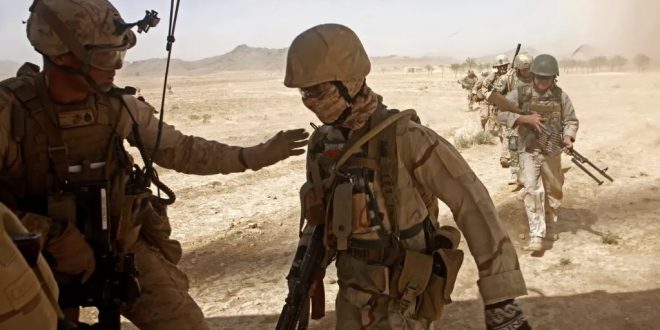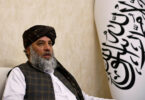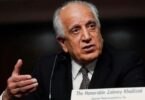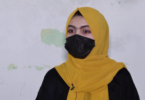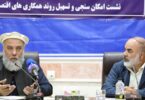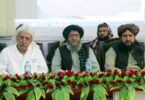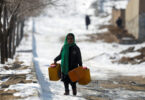KABUL (AT) : In a disturbing revelation, an independent inquiry has uncovered allegations of British special forces implementing a policy of executing Afghan males of “fighting age” in circumstances where they posed no apparent threat. The inquiry, which focuses on alleged illegal activities that occurred in Afghanistan between 2010 and 2013, centers on the misuse of night raids to carry out these executions.
Counsel to the inquiry, Oliver Glasgow KC, stated that there are additional claims suggesting that Afghan partner units refused to collaborate with UK special forces due to their questionable behavior.
Before delving into the details of one alleged unlawful killing during a night raid, referred to as a “deliberate detention operation” (DDO), Mr. Glasgow provided a warning about the graphic images that would be presented during the inquiry, which could be distressing.
The DDO in question resulted in the tragic death of Mohammed Ibrahim, an individual who had worked as an Afghan government official between 2001 and 2007. Ibrahim’s family, including his son Abdul Walli, asserts that he was an innocent civilian and that no weapons were found at the compound where he sustained bullet and dog bite injuries.
Another DDO was detailed by Mr. Glasgow, in which nine men were killed. Their families claim that they were shot while in bed, most likely while asleep. Habibullah Alizai, the head of the family living in the compound, reported being awakened by the sounds of shouting and gunshots and subjected to interrogation and beatings by soldiers during the raid. Special forces defended the use of lethal force, citing self-defense.
As the substantive hearings began at the Royal Courts of Justice in London, families alleging unlawful killings called on the inquiry to provide them with the truth. The investigation will examine allegations of numerous killings, as well as claims of a cover-up of illegal activity and inadequate investigations by the Royal Military Police (RMP).
The inquiry was initiated following legal challenges to the government by Leigh Day solicitors on behalf of the Saifullah and Noorzai families and after significant media investigations. Mr. Glasgow mentioned the existence of claims in a restricted security compartment, recovered years later, that detailed a conversation with a soldier who purportedly admitted to a policy within special forces to kill fighting-age males.
In his opening statements, Mr. Glasgow made it clear that the inquiry would use all its powers to ensure that credible information of wrongdoing, regardless of the individuals’ seniority, would be referred to the relevant authorities.
One member of the Saifullah family, whose father, two brothers, and cousin were allegedly killed during a night raid in February 2011, spoke about the trauma his family has endured since the raid by British forces. They requested the inquiry to provide them with the truth and an explanation for the cruelty they experienced.
The inquiry will also hear submissions on behalf of the families of 33 individuals, including eight children, who were allegedly killed by special forces. Mansour Aziz urged the inquiry to listen to two children who were reportedly severely injured by British forces during a night raid on his family’s home in August 2012. He demanded justice and answers for the raid on their house.
The inquiry will scrutinize two RMP investigations, Operation Northmoor and Operation Cestro. Notably, no charges were filed under Operation Northmoor, a £10 million investigation established in 2014 to examine allegations of executions by special forces, including those involving children. Operation Cestro resulted in three soldiers being referred to the Service Prosecuting Authority, but none faced prosecution.

